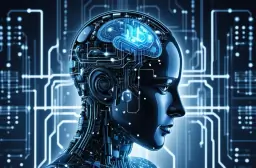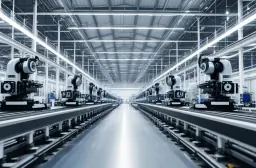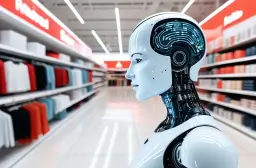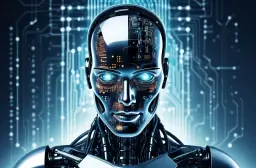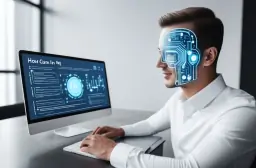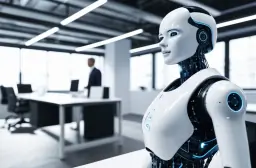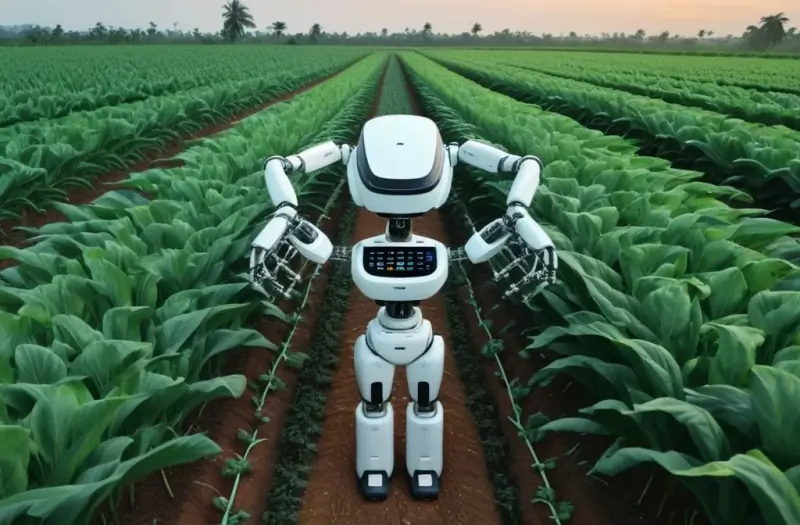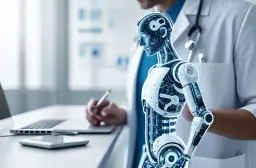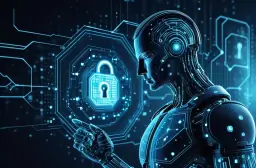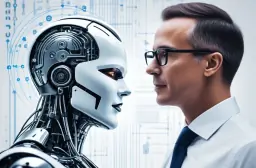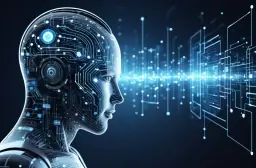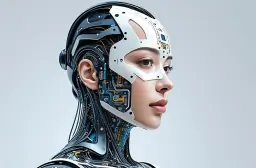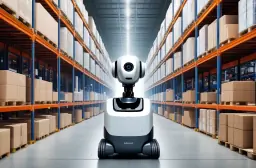How AI Transforms Daily Life: Smart Tech Innovation Unveiled
Table of Contents
In today’s rapidly advancing world, artificial intelligence (AI) is becoming an inseparable part of our daily routines. From the simple convenience of voice assistants to sophisticated AI-powered smart homes, we are living in an era where AI is seamlessly integrated into almost every aspect of our lives. But have we truly grasped the depth of its impact? Is AI simply a futuristic concept, or is it quietly revolutionizing the way we live, work, and interact with technology on a daily basis?
Imagine waking up to a home that adjusts its temperature, lighting, and even music based on your preferences without you having to lift a finger. As you move through your day, your virtual assistant helps schedule meetings, plan meals, and even predict your next shopping needs before you even realize them. This is not the future; it’s now, and it’s all driven by AI technologies. So, how exactly are these innovations reshaping our lives, and what are the implications for the everyday person?
At its core, AI is designed to make our lives easier, more efficient, and more personalized. But as we integrate more AI tools into our homes and workplaces, we must consider the bigger picture: how does AI impact our behavior, our privacy, and our interactions with the world around us? Let’s explore how AI is transforming daily life and the various innovations that are driving this technological revolution.
The Rise of AI in Everyday Life
AI’s presence in our daily lives is not a passing trend but a permanent shift. With the help of machine learning and intelligent automation, AI is increasingly embedded in our homes, workplaces, and even in our pockets. From the smartphones we use to the smart devices that control our homes, AI is providing practical solutions that enhance convenience and efficiency. Whether it’s an app that recommends your next purchase or a voice assistant that helps you manage your calendar, AI applications are subtly altering how we interact with technology.
In smart homes, AI-powered solutions like voice assistants are able to control everything from lighting to heating. These intelligent systems adjust to your routines, learning your preferences over time to create a personalized living experience. Imagine telling your voice assistant to “turn off the lights” as you leave the house—AI seamlessly integrates into your environment, allowing for a more automated lifestyle that once seemed like science fiction.
Moreover, AI isn’t limited to entertainment or convenience—it also drives productivity. AI systems are now used in office environments to automate tasks, organize workflows, and analyze large volumes of data. Whether it’s scheduling meetings or generating reports, intelligent systems are helping to boost efficiency in the workplace.
AI-Powered Personal Assistants: A Step Towards Seamless Interaction

One of the most transformative ways AI is making a difference in our lives is through digital assistants. These virtual helpers—powered by sophisticated algorithms and cognitive computing—are quickly becoming a must-have tool for the tech-savvy. Devices like Amazon’s Alexa, Google Assistant, and Apple’s Siri allow us to perform tasks using just our voice, from controlling smart devices in the home to setting reminders or even making calls.
But how do these systems work so seamlessly? At the heart of these personal assistants lies predictive technology that learns from user interactions. Over time, AI-powered systems gather data from your habits, preferences, and even your emotions, using this information to improve their performance and make more accurate suggestions. As a result, your virtual assistant becomes increasingly adept at understanding your needs without needing explicit instructions every time.
Beyond simple commands, these systems can predict your behavior. For instance, AI-powered personal assistants can recommend an outfit based on the weather or suggest recipes based on your dietary preferences. This level of personalization is possible thanks to AI’s ability to process and analyze vast amounts of data to tailor recommendations to individual users.
The Role of AI in Smart Homes and Household Automation
As smart technology continues to evolve, we are witnessing the rise of AI household systems that enhance convenience, security, and efficiency. Smart thermostats, like those from Nest, adjust the temperature in your home based on your schedule, helping you save energy. Similarly, smart home devices such as lights, locks, and cameras can be controlled remotely through mobile apps, making it easier to monitor and secure your home.
Moreover, AI has made household chores smarter and more efficient. Robotic vacuum cleaners like Roomba use AI to map out your home and clean it more effectively. Some advanced versions even learn the best paths to take and adapt to different types of floors. AI in household automation not only improves convenience but also gives us more time to focus on what truly matters.
However, AI in the home isn’t just about convenience—it’s also about safety. AI-powered security systems can detect unusual activity and alert homeowners or authorities, ensuring that your home is always protected. This level of automation is transforming the way we think about security, providing peace of mind through intelligent surveillance systems.
AI in Healthcare: Revolutionizing Patient Care

AI’s potential to transform healthcare is already being realized in numerous ways. AI-driven tools are being used to predict patient outcomes, assist in diagnoses, and even develop new treatments. Machine learning algorithms can analyze patient data faster than humans, providing doctors with insights that help improve treatment plans and outcomes.
For instance, AI is being used to assist in radiology, analyzing medical images to identify early signs of diseases like cancer. Predictive AI systems can also track patient health trends over time, providing personalized care plans. These technologies are not only helping healthcare providers deliver more effective care but are also empowering patients to take control of their health with the help of AI-powered fitness trackers and wellness apps.
This intersection of AI and healthcare is leading to intelligent medical devices that can monitor vital signs, detect health anomalies, and even alert healthcare professionals to potential emergencies. AI’s ability to analyze real-time health data is making it easier for doctors to make informed decisions, resulting in better patient outcomes and faster responses.
The Future of AI: What’s Next for Smart Technology?
As AI continues to evolve, the possibilities for smart tech innovation are endless. The future of AI promises even greater integration into every facet of our lives. Imagine a world where cars drive themselves, your clothing changes based on your health metrics, and AI systems predict your needs before you even express them.
AI advancements are already making significant strides in fields like robotics, where intelligent machines are being developed to assist with daily tasks such as caregiving, construction, and even agriculture. Robotic assistants in the home could become commonplace, taking on roles that were once performed by humans. Similarly, AI-driven personalization will take custom-tailored experiences to a new level, creating fully automated environments that adapt to our desires and needs in real time.
The impact of AI on our daily lives is not just about technology—it’s about reshaping society. As AI becomes more embedded into our routines, we must consider its ethical implications and the potential effects on privacy, job security, and social interactions. Nonetheless, the future of AI in everyday life holds exciting prospects for creating smarter, safer, and more efficient living environments.
FAQs
What are some common AI applications in daily life?
AI applications can be found in many everyday tools like voice assistants (Siri, Alexa), smart home systems (Nest, Philips Hue), and personal health devices (Fitbit, Apple Watch).
How does AI improve my home’s security?
AI-powered security systems use cameras and sensors to detect unusual activity and send real-time alerts, improving the overall security of your home.
Can AI help in improving my health?
Yes, AI is being used to monitor health trends, predict medical conditions, and suggest personalized health plans, making it easier to maintain a healthier lifestyle.
Is AI only for the tech-savvy?
No, AI applications are designed to be user-friendly and can be easily integrated into the lives of non-technical users, enhancing convenience and efficiency without the need for deep technical knowledge.
Conclusion
AI is no longer a distant concept—it is already changing the way we live, work, and interact with technology. From personal assistants that manage our daily tasks to smart homes that offer seamless automation, AI is making our lives more convenient, personalized, and efficient. As AI continues to evolve, it will further revolutionize industries, improve productivity, and create a more connected world.
Incorporating AI into daily life offers endless possibilities, but it also brings challenges related to privacy, ethics, and job displacement. The key to embracing AI’s potential is finding a balance between technological innovation and human-centric values. As we move forward, it is crucial to harness AI’s power responsibly to create a tech-enhanced life that benefits everyone.




